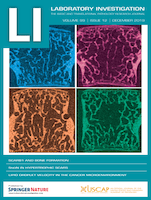
LABORATORY INVESTIGATION
Scope & Guideline
Advancing the Frontiers of Laboratory Science
Introduction
Aims and Scopes
- Disease Mechanisms and Pathogenesis:
Research articles that elucidate the underlying mechanisms of various diseases, including genetic, molecular, and cellular pathways that contribute to disease development and progression. - Diagnostic Innovations and Methodologies:
Studies that introduce and validate new diagnostic approaches, including advancements in molecular pathology, histopathology, and cytology, aiming to improve diagnostic accuracy and patient outcomes. - Clinical Applications of Laboratory Findings:
Research that connects laboratory findings to clinical practice, highlighting the implications of laboratory discoveries for patient management, treatment protocols, and prognostic assessments. - Translational Research:
Articles focused on the translation of laboratory research into clinical practice, including the development of biomarkers and targeted therapies. - Technological Advancements in Pathology:
Papers discussing the application of new technologies, including artificial intelligence and digital pathology, to enhance diagnostic processes and improve laboratory efficiency.
Trending and Emerging
- Artificial Intelligence and Machine Learning Applications:
There is a growing trend towards the use of AI and machine learning in pathology, particularly for diagnostic purposes, image analysis, and predictive modeling, showcasing the integration of technology in laboratory settings. - Genomic and Molecular Characterization:
Research focusing on the genomic and molecular profiling of tumors is on the rise, reflecting a shift towards precision medicine and personalized treatment strategies. - Immune Microenvironment Studies:
Investigations into the tumor immune microenvironment, including the role of immune cells and biomarkers in cancer prognosis and treatment response, are increasingly prominent. - Liquid Biopsy and Non-Invasive Diagnostic Techniques:
The development and validation of liquid biopsy methods for cancer detection and monitoring are emerging as significant areas of research, offering less invasive alternatives to traditional tissue biopsies. - Integrated Multi-Omics Approaches:
There is an increasing emphasis on studies that utilize integrated multi-omics approaches (genomics, proteomics, metabolomics) to gain comprehensive insights into disease mechanisms and treatment responses.
Declining or Waning
- Traditional Histopathology Techniques:
There has been a noticeable decline in publications centered on classical histopathological methods, as newer technologies and methodologies, such as digital pathology and AI-assisted techniques, gain prominence. - Basic Science Studies Without Clinical Relevance:
Research that lacks a clear clinical application or translational aspect is increasingly less favored, with a growing emphasis on studies that connect laboratory findings with patient care. - Single-Method Studies:
Papers focusing solely on single-method approaches without integration of multi-omics or interdisciplinary perspectives are becoming less common, as the field moves towards more comprehensive and integrated research frameworks. - Non-Disease-Specific Laboratory Research:
Research that does not directly address specific diseases or clinical conditions has seen a decrease, as journals prioritize studies with clear clinical implications and relevance.
Similar Journals
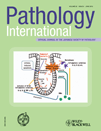
PATHOLOGY INTERNATIONAL
Exploring the Depths of Pathological SciencePATHOLOGY INTERNATIONAL, published by WILEY, stands as a distinguished journal in the field of pathology and forensic medicine, serving as an essential resource for researchers, clinicians, and students alike. With its ISSN 1320-5463 and E-ISSN 1440-1827, PATHOLOGY INTERNATIONAL has established itself since its inception in 1951, navigating through an evolving landscape in medical science with insights and breakthroughs up to 2024. It holds a commendable Q2 ranking in both the Medicine (miscellaneous) and Pathology and Forensic Medicine categories, indicating its robust influence and quality within these fields, as evidenced by its placement in the 70th percentile of Scopus rankings. While currently not an open-access journal, it provides access options that ensure valuable research remains available to the academic community. PATHOLOGY INTERNATIONAL commits to advancing the discipline through pioneering research articles, comprehensive reviews, and expert opinions that push the boundaries of understanding in pathology, thereby supporting the enhancement of diagnostic and therapeutic practices.

Malaysian Journal of Pathology
Transforming understanding of disease through original research.Malaysian Journal of Pathology, published by the MALAYSIAN JOURNAL PATHOLOGY, stands as a pivotal resource in the fields of pathology and medicine, contributing rich insights since its inception in 1979. This peer-reviewed journal, based in Malaysia, is dedicated to disseminating original research, review articles, and case studies that advance the understanding of disease mechanisms and diagnostics. With a current impact factor reflecting its ranked positioning—Q4 in Cell Biology, Q4 in Histology, and Q3 in both Miscellaneous Medicine and Pathology & Forensic Medicine—this journal serves as an essential platform for researchers, clinicians, and students alike. Although it operates without open access, its scholarly rigor and contributions are well recognized, holding ranks such as #84 in Pathology and Forensic Medicine according to Scopus. The Malaysian Journal of Pathology is committed to fostering innovation and excellence in medical research, making it an invaluable tool for professionals seeking to stay abreast of significant advancements in the pathology domain.

Journal of Pathology Clinical Research
Elevating Standards in Clinical Research and PracticeThe Journal of Pathology Clinical Research is a prestigious academic platform published by WILEY, dedicated to advancing the field of pathology and forensic medicine. Since its inception in 2015, this Open Access journal has championed the dissemination of cutting-edge research relevant to both clinical practice and laboratory science, allowing for greater visibility and accessibility to researchers, professionals, and students worldwide. With a robust Q1 ranking in the Pathology and Forensic Medicine category for 2023, it stands as a critical resource for those seeking to stay at the forefront of the field, currently positioned at rank #29 out of 208 according to Scopus metrics, placing it in the 86th percentile. The journal's commitment to high-quality peer-reviewed articles fosters an environment of scholarly exchange that is essential for innovation and professional growth in pathology and forensic studies. Researchers and practitioners alike are encouraged to contribute and engage with a community dedicated to excellence in clinical research.
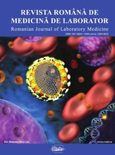
Revista Romana de Medicina de Laborator
Innovating Insights in Medical Laboratory TechnologyRevista Romana de Medicina de Laborator is a prominent open-access journal published by SCIENDO, dedicated to the field of medical laboratory technology and biochemistry. Since its inception, this journal has been a vital platform for disseminating research findings and advancements in laboratory medicine. With an ISSN of 1841-6624 and E-ISSN 2284-5623, it has served the academic community since 2008 and has embraced an open-access model since 2013, ensuring that valuable research is accessible to all. While it features niche rankings in Scopus for areas such as Medical Laboratory Technology and Clinical Biochemistry, it consistently strives to engage researchers, professionals, and students. Its rich collection of articles highlights innovative techniques and methodologies, supporting the ongoing development of laboratory practices. Although its coverage in Scopus has been discontinued, the journal continues to publish high-quality studies that contribute significantly to the field, fostering knowledge exchange essential for advancing medical science.
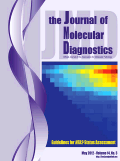
JOURNAL OF MOLECULAR DIAGNOSTICS
Unveiling innovative methodologies in molecular diagnostics.The Journal of Molecular Diagnostics is a premier publication in the fields of molecular medicine and pathology, published by Elsevier Science Inc. With an impressive impact factor and recognized as a Q1 journal in both Molecular Medicine and Pathology and Forensic Medicine, this journal is dedicated to advancing the understanding and application of molecular diagnostics in clinical practice. The journal features rigorous peer-reviewed research, comprehensive reviews, and cutting-edge methodologies that highlight novel diagnostic tests and biomarkers. Researchers, professionals, and students in the biomedical sciences are invited to explore its diverse array of articles and contribute to a growing body of knowledge critical for innovation in healthcare delivery. Located in the Netherlands, the journal has secure its position among the top-tier journals with its recent Scopus ranking of 20th out of 208 in Medicine Pathology and Forensic Medicine, reflecting a strong percentile ranking of 90th. With coverage spanning from 1999 to 2024, the Journal of Molecular Diagnostics remains a vital resource for anyone committed to the future of molecular research and diagnostics.
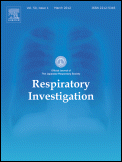
Respiratory Investigation
Transforming insights into impactful respiratory solutions.Respiratory Investigation is a leading peer-reviewed journal published by Elsevier, dedicated to advancing the field of Pulmonary and Respiratory Medicine. Since its inception in 2012, the journal has grown to become a vital resource for researchers, clinicians, and students alike, providing a platform for high-quality research articles, reviews, and clinical studies. With a commendable impact factor and ranked in the Q2 category of Scopus' 2023 metrics, it stands at rank #57 out of 155 in its field, illustrating its importance and influence within the academic community. Although the journal operates on a subscription basis, it remains committed to disseminating essential findings that enhance the understanding and treatment of respiratory diseases. Set against the innovative backdrop of the Netherlands, Respiratory Investigation not only serves as a conduit for scholarly exchange but also plays a critical role in shaping future research directions and clinical practices.

PATHOLOGICA
Advancing the Frontiers of Pathology and Forensic Medicine.PATHOLOGICA is a leading academic journal dedicated to the field of pathology and forensic medicine, published by PACINI EDITORE. With a rich history dating back to its inception in 1945, the journal has consistently contributed to the advancement of knowledge in these vital areas of medical research and practice. Currently ranked in the Q1 quartile for Pathology and Forensic Medicine and holding an impressive position as #42 out of 208 in the Scopus rankings, it reflects a significant impact within the academic community, boasting an 80th percentile ranking. The journal is committed to publishing high-quality, peer-reviewed articles that explore innovative research findings and clinical advancements, making it an essential resource for researchers, clinicians, and students alike. Though it does not offer open access, PATHOLOGICA continues to foster scholarly communication by disseminating cutting-edge research findings, thus playing a pivotal role in enhancing pathology education and practice worldwide.
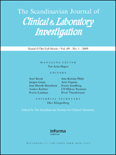
SCANDINAVIAN JOURNAL OF CLINICAL & LABORATORY INVESTIGATION
Fostering innovation in clinical diagnostics.The Scandinavian Journal of Clinical & Laboratory Investigation is a premier publication in the fields of clinical biochemistry and laboratory medicine, published by Taylor & Francis Ltd in the United Kingdom. With an ISSN of 0036-5513 and E-ISSN 1502-7686, this journal has been a vital source of scholarly articles since its inception in 1949, and is set to celebrate over seventy-five years of contributing to scientific knowledge in 2024. Ranked in the Q2 category for both Clinical Biochemistry and Medicine (Miscellaneous), it holds a robust position within the Scopus rankings, with a commendable rank of 77/117 in its discipline. The journal is dedicated to advancing research by offering a platform for high-quality studies that explore the development and application of clinical and laboratory investigations, making it essential reading for researchers, practitioners, and students interested in the latest advances and methodologies in the field. Although it does not currently offer Open Access, a wealth of valuable research insights awaits readers within its pages, highlighting its crucial role in fostering communication and innovation in clinical sciences.
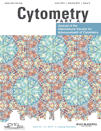
CYTOMETRY PART A
Enhancing Diagnostics and Therapeutics with Cutting-Edge StudiesCYTOMETRY PART A, published by WILEY, stands as a premier journal within the fields of Cell Biology, Histology, and Pathology and Forensic Medicine. With an impressive impact factor reflected in its prestigious 2023 quartile rankings—Q2 in Cell Biology and Q1 in both Histology and Pathology and Forensic Medicine—this journal is recognized for its influential contributions to advancing the understanding of cytometry in clinical and research settings. The journal, which spans research from 2003 to 2024, is dedicated to publishing high-quality studies, comprehensive reviews, and innovative methodologies that drive the field forward. As part of its commitment to accessibility, CYTOMETRY PART A provides open access options, ensuring that vital research findings are readily available to the scientific community and beyond. Researchers, professionals, and students alike are invited to explore the vast array of articles that not only elucidate the complexities of cellular systems but also enhance diagnostic techniques and therapeutic strategies.
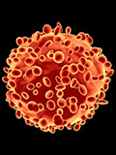
Annual Review of Pathology-Mechanisms of Disease
Decoding Disease: A Comprehensive Review of MechanismsAnnual Review of Pathology: Mechanisms of Disease is a premier scholarly journal published by ANNUAL REVIEWS that systematically reviews significant advancements in the field of pathology and the mechanisms underpinning various diseases. With an ISSN of 1553-4006 and an E-ISSN of 1553-4014, the journal has established its importance within the academic community, evidenced by its prestigious Q1 rankings in several categories including medicine, pathology, forensic medicine, and plant science for 2023. Notably, it ranks #1 out of 208 in the pathology and forensic medicine category, placing it in the 99th percentile according to Scopus metrics. Although not an open-access journal, it offers crucial insights to researchers, professionals, and students alike by providing a comprehensive understanding of pathophysiological concepts and emerging trends. The journal continues to be an essential resource for those dedicated to advancing research and practical applications in disease mechanisms.